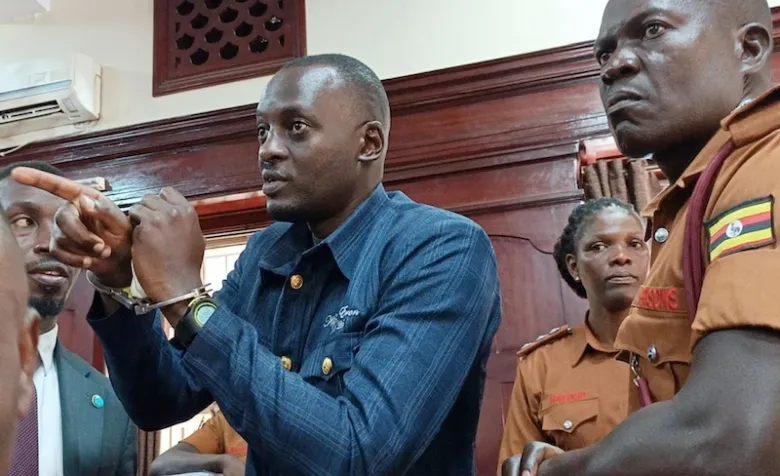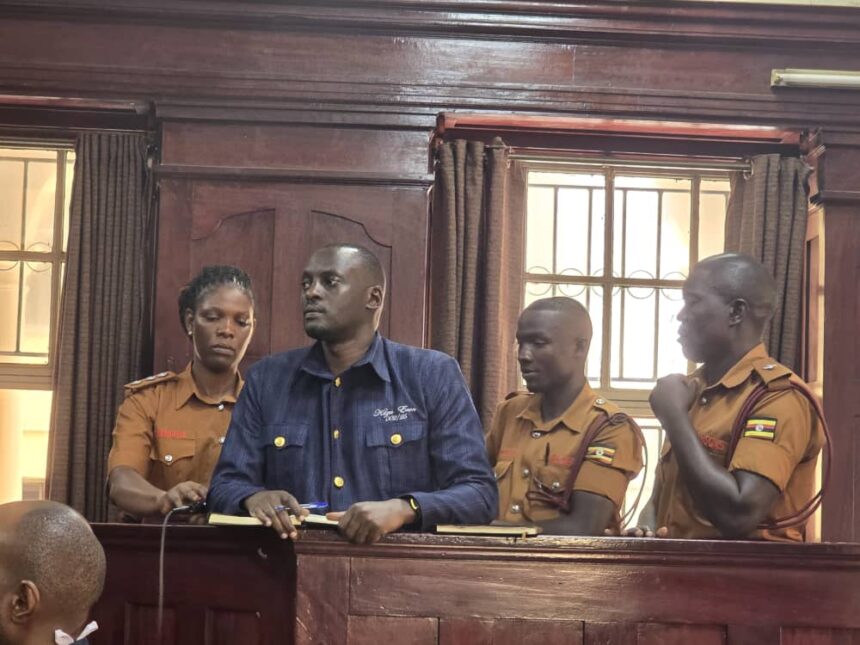Prominent human rights lawyer Eron Kiiza has been released on bail after spending close to three months in Kitalya Prison, following a controversial conviction by the now-defunct General Court Martial.
Kiiza, a fierce advocate for opposition figures, was granted bail on a UGX 20 million cash deposit and ordered to surrender his passport as part of his release conditions.
Kiiza was sentenced on January 7, 2025, to nine months in prison for contempt of court, a charge widely condemned by legal experts and human rights organizations. His abrupt conviction raised serious concerns over the legality of a civilian trial in a military tribunal, with critics arguing that the ruling was politically motivated.
The lawyer’s troubles with the General Court Martial reportedly stemmed from his outspoken criticism of the military court’s handling of cases involving opposition politicians and activists. Kiiza had been representing high-profile opposition figures, including Dr. Kizza Besigye, and frequently challenged what he described as unfair and politically driven prosecutions.
His arrest followed public statements in which he questioned the fairness and integrity of the military court’s rulings, particularly those targeting government critics. The court accused him of disrespect and interference with judicial proceedings, resulting in his conviction for contempt.
His sudden imprisonment drew sharp rebukes from both local and international legal circles. The Uganda Law Society, along with international human rights groups, strongly condemned the ruling and called for his immediate release, arguing that his detention violated fundamental rights to free speech and fair trial.

During his time in detention, calls for justice grew louder, with activists staging protests and legal bodies petitioning for his freedom. The case also sparked renewed debates about the role of military courts in prosecuting civilians and the broader issue of judicial independence in Uganda.
Speaking outside court after securing bail, Kiiza vowed to continue fighting for justice, stating that his imprisonment had only strengthened his resolve. “This has been a dark chapter, but I am not silenced,” he said. “The struggle for justice, democracy, and human rights must continue.”
His legal team has since filed an appeal challenging both the conviction and sentence, arguing that the military court lacked jurisdiction over civilian cases. “We will pursue all legal avenues to overturn this injustice,” said one of Kiiza’s lawyers.
While Kiiza’s release on bail is seen as a temporary victory for human rights defenders, many observers believe his case reflects a wider crackdown on dissent and political activism in Uganda.
As he awaits the appeal hearing, legal experts and opposition leaders continue to push for judicial reforms and greater protection of legal professionals who challenge state power







